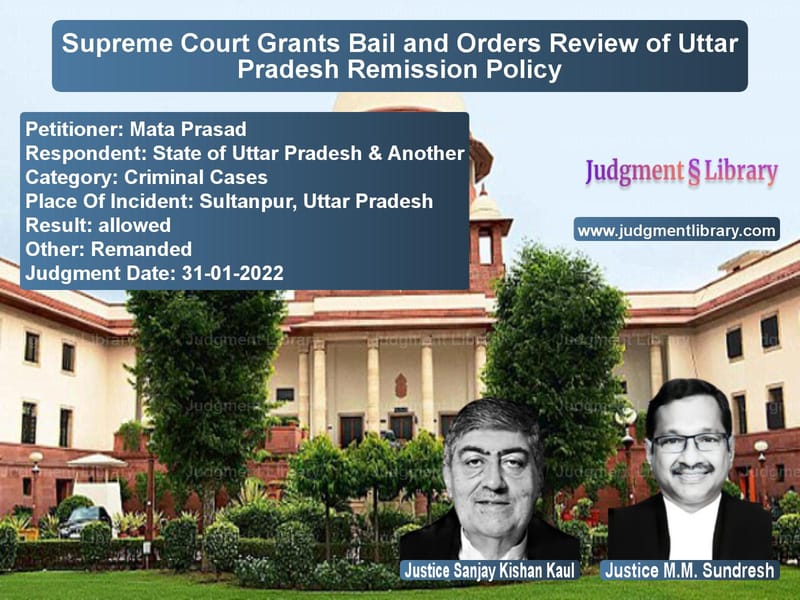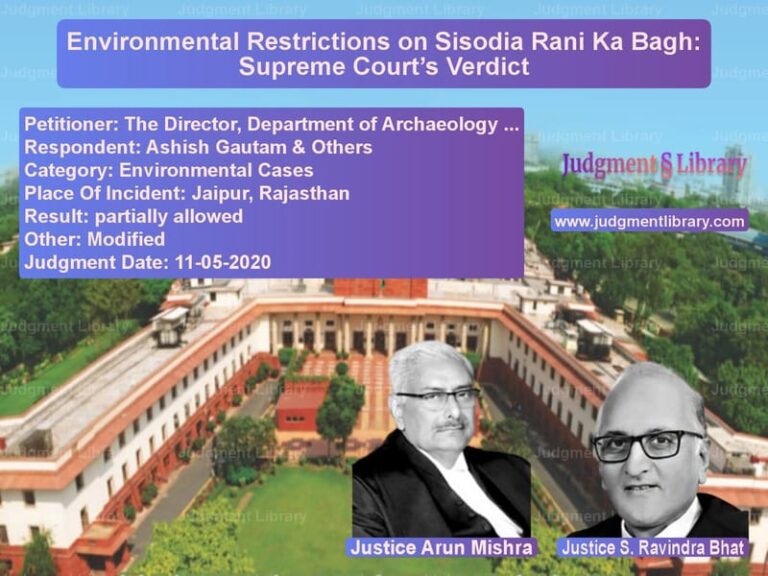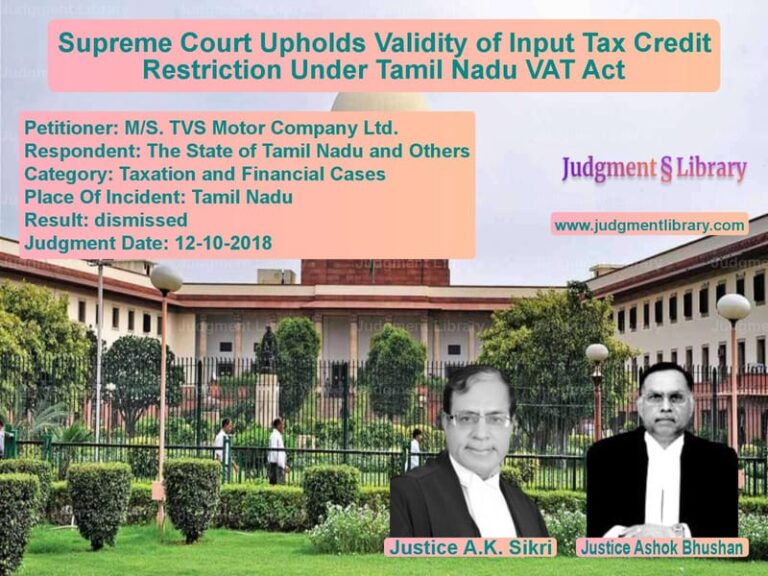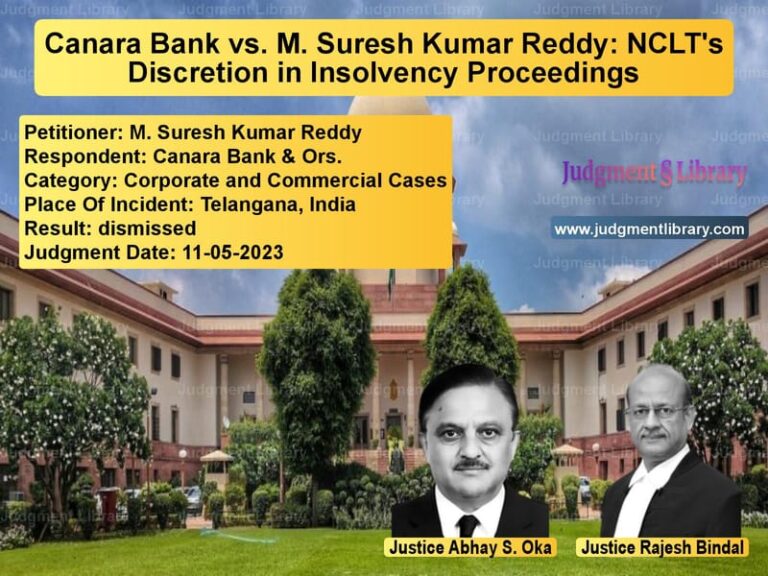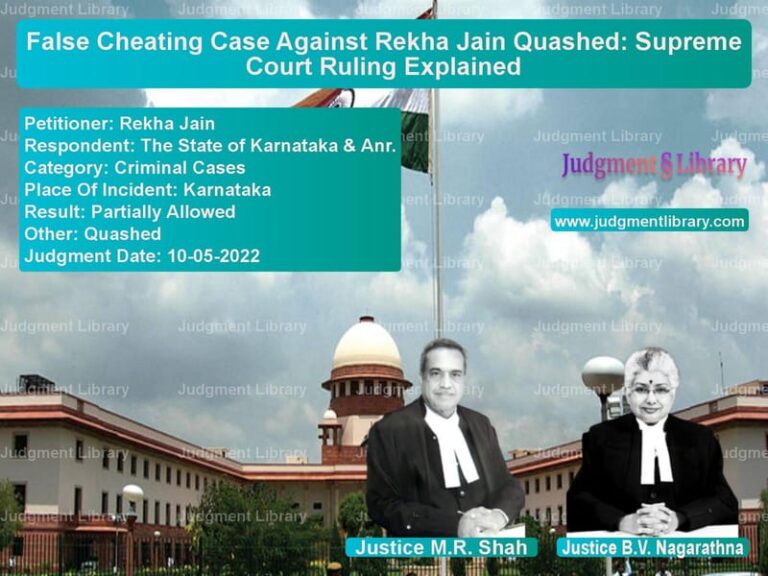Supreme Court Grants Bail and Orders Review of Uttar Pradesh Remission Policy
The Supreme Court of India recently ruled in favor of Mata Prasad, a life convict who had served over 22 years in prison, by directing his immediate bail and ordering the Uttar Pradesh government to reconsider its remission policy. The case highlights the principles of remission and the rights of prisoners eligible for early release.
Background of the Case
Mata Prasad, along with his younger brother and father, was convicted under Sections 302, 307, and 323 read with Section 34 of the IPC for murder and attempt to murder. The Sessions Court sentenced them to life imprisonment on September 30, 2004, for an incident that occurred in 1999 in Sultanpur, Uttar Pradesh. His appeal against the conviction has been pending before the Allahabad High Court for 17 years.
Having completed 14 years of imprisonment, he applied for premature release under the Uttar Pradesh Prisoners’ Release on Probation Act, 1938. His petition was rejected in 2017. Further, the Uttar Pradesh government introduced a new remission policy on August 1, 2018, under which prisoners serving life sentences were eligible for release after 16 years of actual imprisonment and 20 years with remission, provided they did not belong to restricted categories. Despite meeting all eligibility criteria, his request was again rejected in November 2019.
The petitioner claimed that from 2018 to 2021, the Uttar Pradesh government released thousands of prisoners under the remission policy, yet his application was ignored without valid reasons.
Legal Issues
- Was the petitioner eligible for premature release under the 2018 policy?
- Did the new 2021 remission policy, which introduced a minimum age of 60 years for early release, apply retrospectively?
- Did the government violate the Supreme Court’s previous ruling in State of Haryana v. Raj Kumar @ Bittu (2021) regarding remission policies?
- Was the Uttar Pradesh government’s refusal to grant remission arbitrary?
Petitioner’s Arguments
The petitioner, represented by Advocate Mohd. Irshad Hanif, contended:
- His case was fully covered under the 2018 remission policy and should have been considered accordingly.
- The 2021 policy imposed a new condition that prisoners must be at least 60 years old to qualify for remission. This unfairly extended his imprisonment to 40 years.
- The Supreme Court in Raj Kumar @ Bittu (2021) had ruled that remission must be considered based on the policy in force at the time of conviction.
- Despite multiple recommendations for his release in 2020 and 2021, his application was ignored without explanation.
Respondent’s Arguments
The State of Uttar Pradesh, represented by Additional Advocate General Ardhendhumauli Kumar Prasad, argued that:
- The remission policy was revised in July 2021, introducing new conditions, including an age limit of 60 years.
- As the petitioner had not reached 60 years, his case was not eligible under the new rules.
- Granting remission is not an automatic right and depends on the discretion of the government.
- The petitioner could have sought bail from the High Court instead of approaching the Supreme Court directly.
Supreme Court’s Observations
The Supreme Court bench, comprising Justice Sanjay Kishan Kaul and Justice M.M. Sundresh, made the following key observations:
“The policy prevalent at the time of conviction shall be taken into consideration for considering the premature release of a prisoner.”
“The introduction of an age restriction of 60 years under the 2021 policy creates an unreasonable barrier for young offenders. A 20-year-old prisoner would have to serve 40 years before qualifying for remission.”
“The petitioner has already served over 22 years without remission and almost 28 years with remission. He has been incarcerated beyond the required period under the 2018 policy.”
Key Legal Findings
- Application of Remission Policy: The 2018 policy should be applicable since it was in force when the petitioner became eligible for premature release.
- Age Restriction Unjustified: The Court questioned the validity of the 60-year requirement in the 2021 policy and directed the Uttar Pradesh government to re-examine it.
- Long Delay in Appeal: The Court noted that the petitioner’s criminal appeal had been pending for 17 years without resolution.
- Government’s Discretion Not Absolute: While remission is a privilege, it cannot be denied arbitrarily when an individual meets all eligibility conditions.
Final Judgment
The Supreme Court issued the following directives:
- The petitioner shall be released on bail immediately pending final remission decisions.
- The Uttar Pradesh government must reconsider the petitioner’s remission under the 2018 policy and decide within three months.
- The state must review the validity of the 60-year requirement in the 2021 policy within four months.
Legal Implications of the Judgment
This ruling has several significant implications:
- Clarification on Remission Policies: Prisoners eligible under older policies cannot be subjected to harsher new conditions retroactively.
- Judicial Review of Government Policies: The Court has the power to examine remission conditions to ensure they are fair and reasonable.
- Relief for Long-Term Prisoners: Many prisoners who have served 20+ years may now seek premature release under older remission policies.
Conclusion
The Supreme Court’s judgment ensures that prisoners are not subjected to arbitrary policy changes that extend their imprisonment unfairly. By granting immediate bail and calling for a policy review, the Court upholds the principle of fair and just punishment while balancing the government’s right to regulate remission.
Petitioner Name: Mata Prasad.Respondent Name: State of Uttar Pradesh & Another.Judgment By: Justice Sanjay Kishan Kaul, Justice M.M. Sundresh.Place Of Incident: Sultanpur, Uttar Pradesh.Judgment Date: 31-01-2022.
Don’t miss out on the full details! Download the complete judgment in PDF format below and gain valuable insights instantly!
Download Judgment: mata-prasad-vs-state-of-uttar-prade-supreme-court-of-india-judgment-dated-31-01-2022.pdf
Directly Download Judgment: Directly download this Judgment
See all petitions in Bail and Anticipatory Bail
See all petitions in SC/ST Act Case
See all petitions in Contempt Of Court cases
See all petitions in Judgment by Sanjay Kishan Kaul
See all petitions in Judgment by M.M. Sundresh
See all petitions in allowed
See all petitions in Remanded
See all petitions in supreme court of India judgments January 2022
See all petitions in 2022 judgments
See all posts in Criminal Cases Category
See all allowed petitions in Criminal Cases Category
See all Dismissed petitions in Criminal Cases Category
See all partially allowed petitions in Criminal Cases Category

